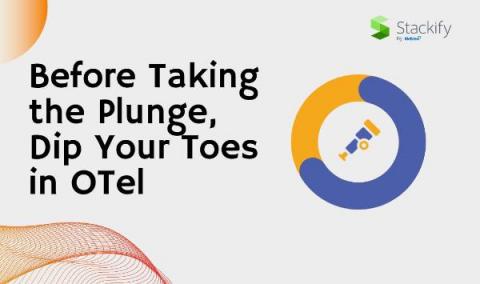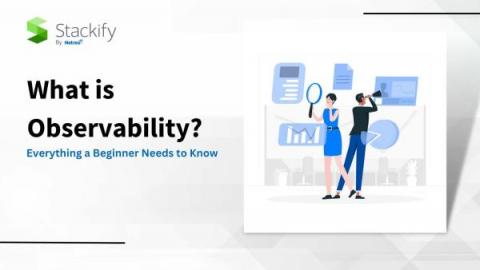Operations | Monitoring | ITSM | DevOps | Cloud
Stackify
Java Application Profiling with Prefix featuring OpenTelemetry
Before Taking the Plunge, Dip Your Toes in OTel
OpenTelemetry was launched in May 2019, as a merger of the OpenCensus and OpenTracing projects. The open-source, vendor-neutral project resides within the Cloud Native Computing Foundation (CNCF), which virtually ensures its longevity and widespread adoption. In fact, OpenTelemetry has gained significant traction in recent years, with support from many major cloud providers and the tech industry.
4 Differences Between DEM & RUM You Should Know
If you want to deliver an outstanding user experience you must know the differences between DEM and RUM. In this modern world, businesses are embracing digitization to provide better services to their customers. However, customer expectations and preferences have changed drastically over time. To address customer demands, businesses have started investing in systems and applications that enhance the user experience.
Prefix Native Java Profiler Demo
Retrace Logging Benefits
A Guide to OpenTelemetry for .NET Engineers
Hey.NET engineers! Today, we’ll explore the world of OpenTelemetry, focusing on how it can benefit your.NET applications. We’ll talk about the strengths and weaknesses of OpenTelemetry, walk you through the setup process, discuss the basics, and share some best practices. Plus, we’ll touch on topics like auto-instrumentation, metrics, and more. So, let’s dive in!
What Is Observability? Everything a Beginner Needs to Know
Observability originated in the field of engineering and has recently gained popularity in the world of software development. Put simply, observability refers to the ability to understand the internal state of a system based on its external outputs. IBM defines it as follows: As systems have become more complex, often including remote elements in cloud-based systems, management of the systems and troubleshooting faults and downtime have also become more complex.
SLO vs SLA vs SLI: A Complete Guide for DevOps Professionals
In today’s fast-paced world of software development, DevOps professionals strive to provide high-quality and dependable services for their users. An essential aspect of achieving this objective is understanding and effectively managing service level indicators (SLIs), service level objectives (SLOs) and service level agreements (SLAs). These metrics help guarantee that a service meets its performance and reliability targets.











